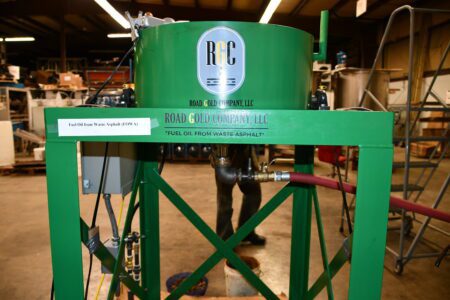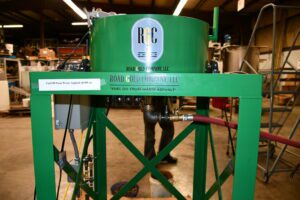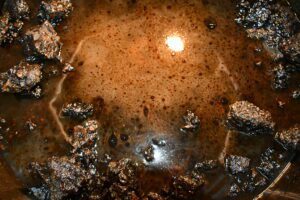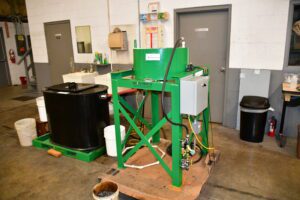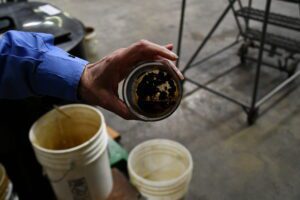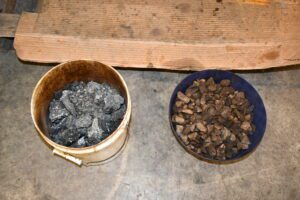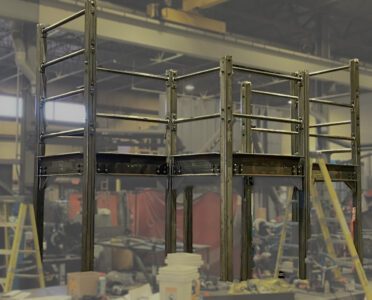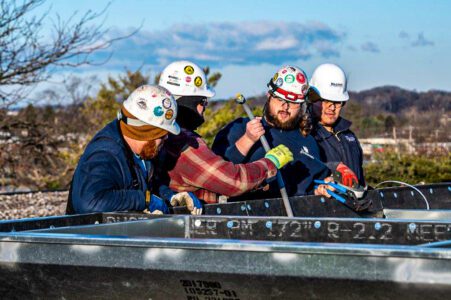DEPARTMENTS: ENGINEERING (CAD & DESIGN), SPECIALTY METAL & FABRICATION
MARKET: INDUSTRIAL
LOCATION: YORK, PENNSYLVANIA
PROJECT MANAGER: CLAY REIDER
This is an invented process for recycling waste asphalt produced on the highways, tennis courts, and residential driveways into fuel oil. From conception to the finished prototype known as FOWA-I, Clay helped create and design the process in which 100lbs of waste asphalt can generate clean gravel and #4 fuel oil.
More than 70 million tons of asphalt waste are generated annually in the US. RGC believes that waste asphalt can be re-used to produce fuel oil for further processing. RGC has invented a cold-water process (patent pending) for recycling waste asphalt produced on the highways, tennis courts and residential driveways into fuel oil and clean aggregate using their bio-remediation product VaporRemed. The clean aggregate remaining at the end of the process is free from asphalt binder or bitumen and can be classified as ‘clean fill’. Both the fuel and clean aggregate can be sources of revenue according to the Federal National Highway Administration (FHWA).
FOWA Model 1 (Fuel Oil from Waste Asphalt Model 1) is designed for use by operators producing small volumes of waste. The reaction vessel is 24” diameter and height of 12” with a bottom drain. The drain pipe is connected to an Oil Water Separator through a ball valve. The ball valve controls the flow of oily water in the oil-water separator (OWS). The unit is manually operated though it can be made automatic if needed.
[doc id=5516]
Walton & Company
Pennsylvania
1800 Industrial Hwy
York Pa 17402
717.755.9030
3320 Concord Road
York Pa 17402
717.840.2258
Md
150 Lakefront Dr
Cockeysville, Md 21039
410.891.8631
Contact Us Today!
Blog News
Walton Spotlight ~ Jeremy Drawbaugh, HVAC & Plumbing Estimator
Meet Jeremy Drawbaugh, who has dedicated two decades to Walton, cultivating a culture of positivity and continuous growth. At Walton, Jeremy finds the support and flexibility he needs as a single father, making it his […]

